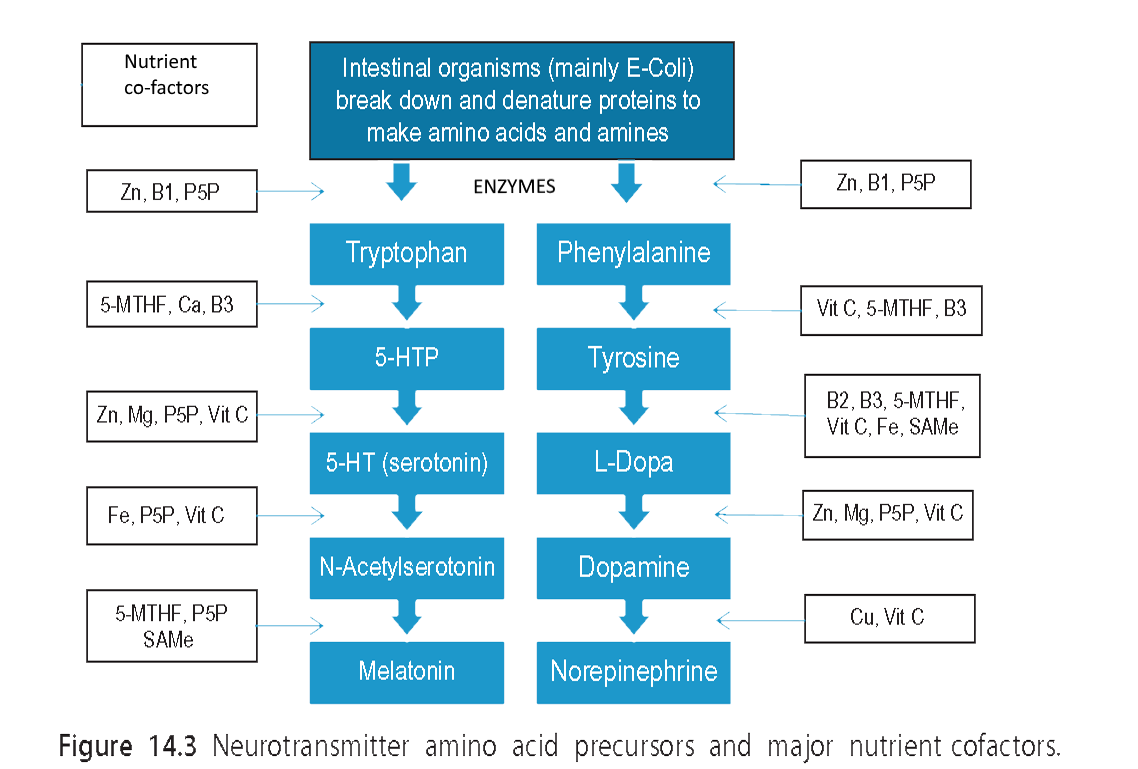Nutrition for Mental Health
Your brain is always working, even when you’re asleep. It controls everything from your breathing and heartbeat to your thoughts and movements. Because of this, your brain needs a steady supply of nutrients, all of which come from the food you eat. Simply put: what you eat shapes your brain. The nutrients from your diet help build and maintain every cell in your body, including your brain cells. These nutrients affect how well your brain works, which in turn shapes how you think and feel. Your brain works best when it gets enough vitamins, minerals, healthy fats, protein, and antioxidants—these help protect your cells from damage and inflammation.
Eating lots of processed carbs, like white bread and sugary snacks, can actually harm your brain. These foods can cause inflammation and stress in your cells. Research shows that diets high in refined carbs and sugars are linked to problems with brain function and can even lead to mood issues like anxiety and depression. Even wheat, which is common in many diets, contains lectins that can damage the lining of your gut and lead to more inflammation.
Despite plenty of scientific evidence connecting diet and mental health, many doctors still don’t pay much attention to the link between what you eat and how you feel. But it’s common sense: if your brain doesn’t get the nutrients it needs, or if inflammation builds up, problems will follow. That might help explain why conditions like ADHD, autism, depression, anxiety, diabetes, and cancer are becoming more common. Back in 2011, Dr. Margaret Chan, who was then the head of the World Health Organization, called this a “slow motion catastrophe.” She blamed highly processed foods for driving this health crisis.
Nutrients for Psychiatric Disorders
Nutritional Psychiatry is an emerging field, grounded in evidence-based science, that that there are direct correlations between what you eat, how you feel, and how you behave.

The above diagram illustrates the role of nutrients in the manufacture of neurotransmitters in the brain. Gut organisms (bacteria), mainly E-Coli, break down proteins to make the amino acids Tryptophan, Phenylalanine, and Tyrosine (amongst others). These get converted by the enzymes produced by genes (large blue arrows) to make neurotransmitters (messenger chemicals). Note: each enzyme has specific nutrient co-factors, without which the enzyme cannot function.
- Tryptophan gets converted to Serotonin, which helps regulate peristalsis (bowel movement), appetite, mood, and pain. Serotonin gets converted into Melatonin which regulates and promotes sleep.
- Phenylalanine and Tyrosine get converted to Dopamine and Norepinephrine which are essential for focus, concentration, and lack of distractibility.
These nutrients are vital for brain function. Thus, it makes total sense to try and optimise these nutrient levels to promote healthy brain function and reduce psychiatric symptoms..
For more information on this topic, please see: Nutritional medicine as mainstream in psychiatry, Sarris J, et al. Lancet Psychiatry. 2015
Although the field of Nutritional Psychiatry is relatively new, there is observational data showing the correlation between diet and mental health . Controlled studies in manty countries show that diet and nutrients have a significantly large effects on mental health.
For more information on the mind-gut connection, see the links below:
Reviews:
- http://ajcn.nutrition.org/content/99/1/181.long
- http://www.ncbi.nlm.nih.gov/pubmed/23720230
- http://www.ncbi.nlm.nih.gov/pmc/articles/PMC4167107
- https://www.ncbi.nlm.nih.gov/m/pubmed/30620820
- https://www.ncbi.nlm.nih.gov/m/pubmed/26317148
- https://www.ncbi.nlm.nih.gov/m/pubmed/25830700
- https://www.ncbi.nlm.nih.gov/m/pubmed/28942748
Intervention studies that show how dietary improvements can prevent depression:
- http://www.ncbi.nlm.nih.gov/pmc/articles/PMC3848350
- http://www.ncbi.nlm.nih.gov/pmc/articles/PMC4050338
Diet and mental health outcomes in children:
- http://www.ncbi.nlm.nih.gov/pubmed/24074470
- http://www.ncbi.nlm.nih.gov/pubmed/25524365
- http://www.ncbi.nlm.nih.gov/pubmed/23541912
Diet and brain plasticity:
In addition, you will find thousands of other publications about the benefits of nutrients such as zinc, magnesium Vit D3, Vit B, Fish Oils. By searching Scholar.google.com with terms such as the nutrient name and the disorder you will pull up many results.
